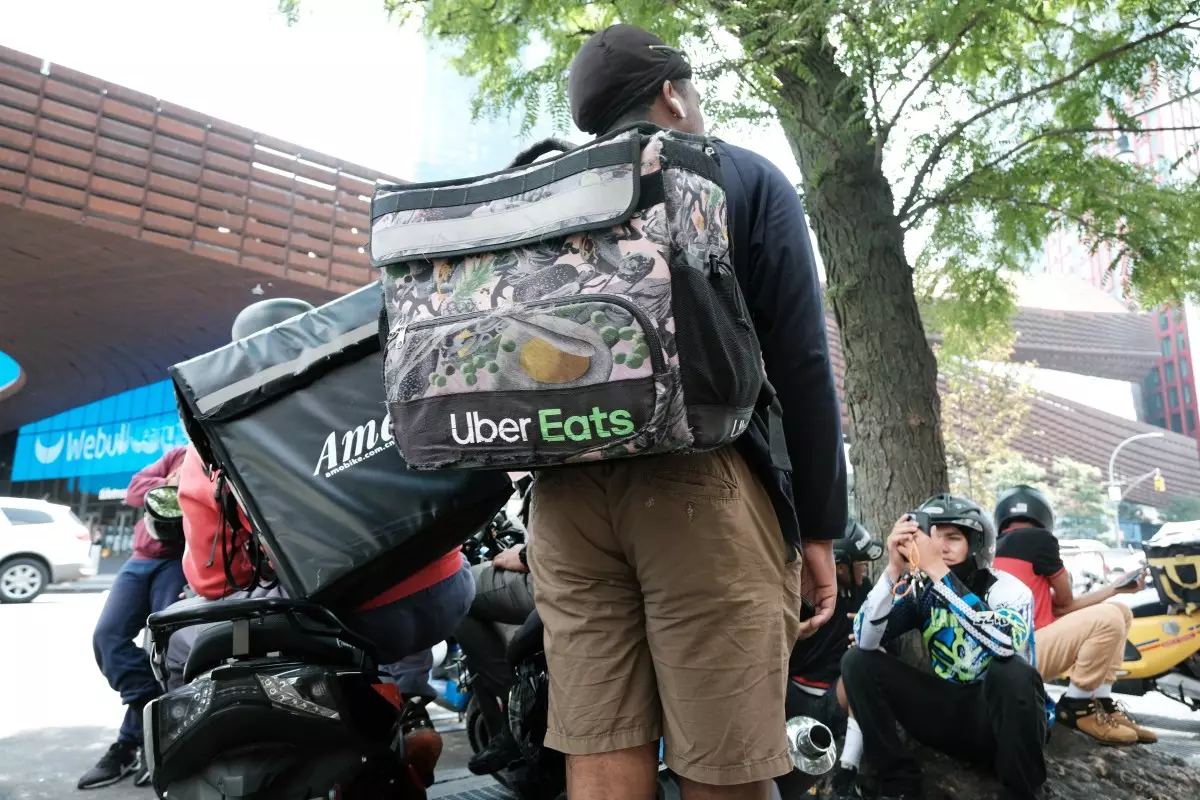In recent developments within the rapidly evolving food delivery sector, Uber has initiated a legal battle against its leading competitor, DoorDash. Law enforcement is now entangled in accusations of anti-competitive practices as Uber claims that DoorDash manipulates restaurant owners into entering exclusive contracts. This lawsuit, filed in California’s Superior Court, underscores the heightened tensions in an already fiercely contested market, posing significant implications for both companies and their operational strategies.
Uber’s assertion focuses on DoorDash’s alleged coercive tactics aimed at restaurants. The company argues that, through the threat of exorbitant penalties, DoorDash pressures these establishments into agreements that favor its delivery service over others. This creates a cycle of dependency, with considerable implications for market dynamics and consumer choice within the food delivery ecosystem. The lawsuit shines a light on the intricate relationships between delivery services and restaurants, revealing how economic pressures can dictate these partnerships.
The Allegations at a Glance
Uber claims that DoorDash dominates the market by employing strategies that can be categorized as intimidation. According to Uber, DoorDash demands exclusive partnerships, particularly concerning first-party deliveries. This means that once restaurants engage with DoorDash, they may find themselves restricted from utilizing other platforms, such as Uber Direct. By prioritizing their service above all others, DoorDash potentially hampers competition and limits consumer options.
The allegations have been met with denials from DoorDash. In a public statement, a representative dismissed Uber’s claims as baseless, arguing that Uber’s inability to provide competitive services is the true issue at hand. DoorDash’s response highlights a central theme in corporate rivalries: defensive posturing in the face of competitive adversity. While both companies provide platforms for customers to order food and employ gig workers for delivery, they also engage in price wars and customer acquisition strategies to dominate the market.
Uber’s legal action raises critical questions about the implications of exclusive agreements for restaurants. For these businesses, the choice of delivery service can be significantly influenced by the bargaining power wielded by companies like DoorDash. The lawsuit illustrates the precarious position of restaurants that may feel economically pressured into accepting terms that are not in their best interests due to fear of retribution from a major player in the industry.
This tension impacts consumers as well; a less competitive market may ultimately lead to fewer choices and higher prices. If restaurants feel constrained to one delivery platform, customer access to diverse food options could diminish. Moreover, the potential for innovation in delivery services may stall, as companies consolidate their power rather than compete for improvement.
Uber, known for its global rideshare operation, has expanded into food delivery with Uber Eats. Its criticism of DoorDash suggests an effort to position itself as a champion for the restaurant community. According to Sarfraz Maredia, head of the Americas for delivery at Uber, the company aims to offer merchants autonomy in how they manage their delivery operations, contrasting with what they perceive to be the predatory tactics of DoorDash.
Uber’s strategy includes targeting restaurant owners who are reportedly dissatisfied with DoorDash’s practices, asserting that the company has limited their operational growth and autonomy. However, whether this legal maneuvering translates into a significant competitive advantage for Uber remains uncertain, contingent on the lawsuit’s outcome and broader market trends.
As the lawsuit unfolds, both companies will continue to navigate the complexities of the food delivery landscape. The implications of this legal battle may extend beyond just Uber and DoorDash, potentially reshaping operational strategies across the industry. With consumer preferences continuously shifting and the gig economy evolving, the ultimate outcome could redefine how food delivery services evolve and compete in the long run.
The Uber vs. DoorDash saga is emblematic of broader trends in the gig economy, showcasing how competitive pressures can lead to both innovation and controversy. It remains to be seen whether this legal conflict will reignite the discourse around antitrust laws and competitors’ responsibilities within the marketplace. What is evident, however, is that the stakes are high for all parties involved, with significant consequences depending on the final verdict.

